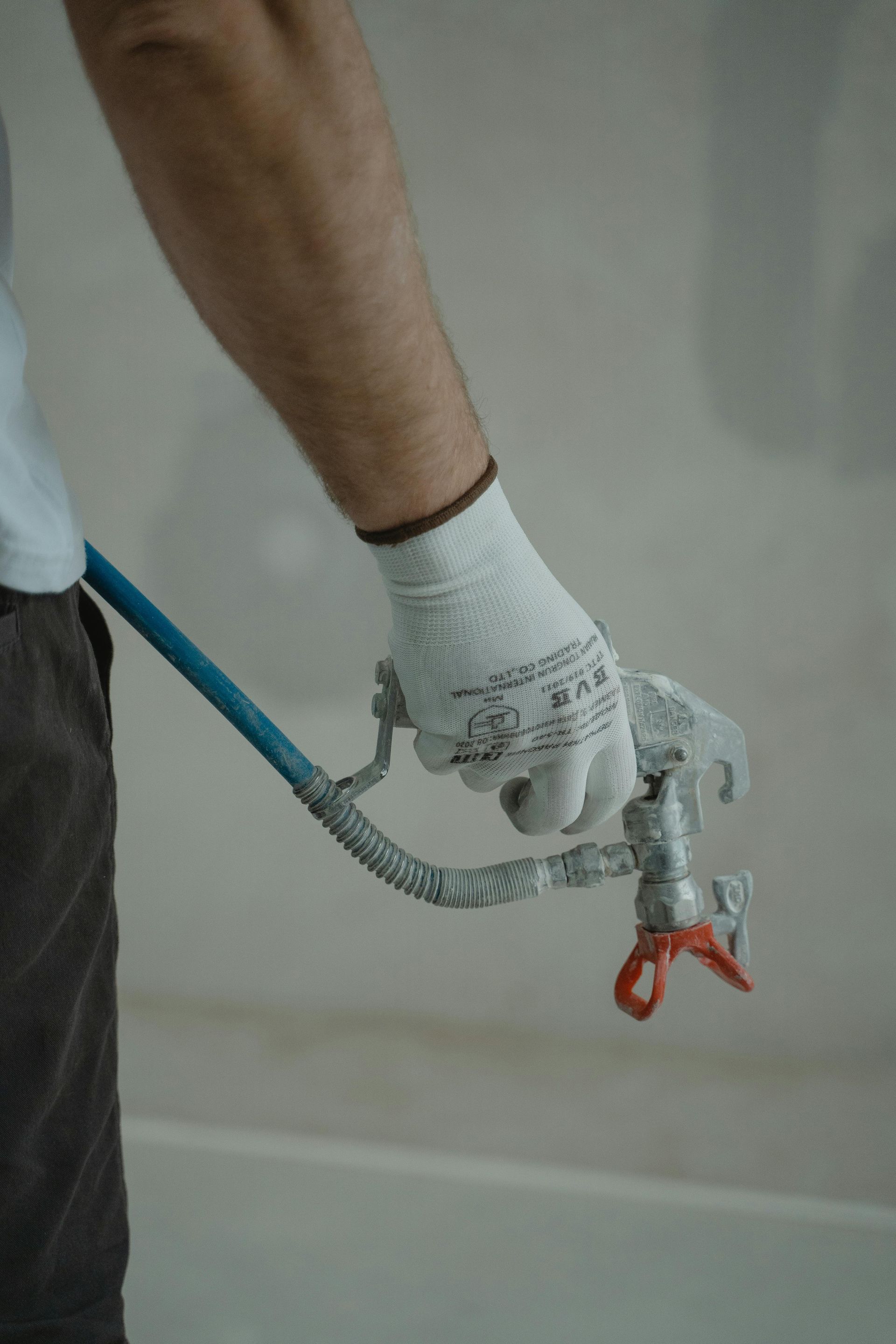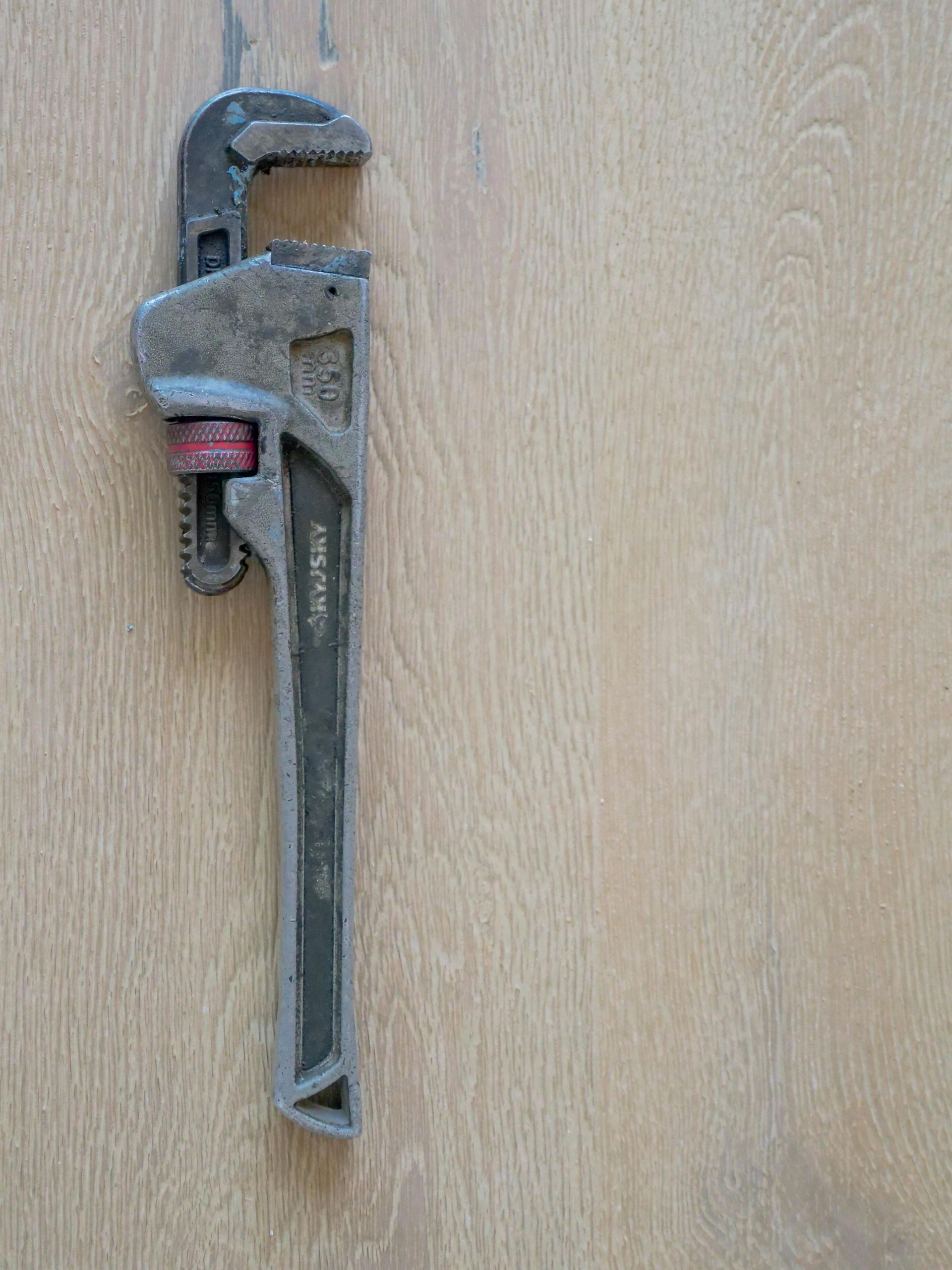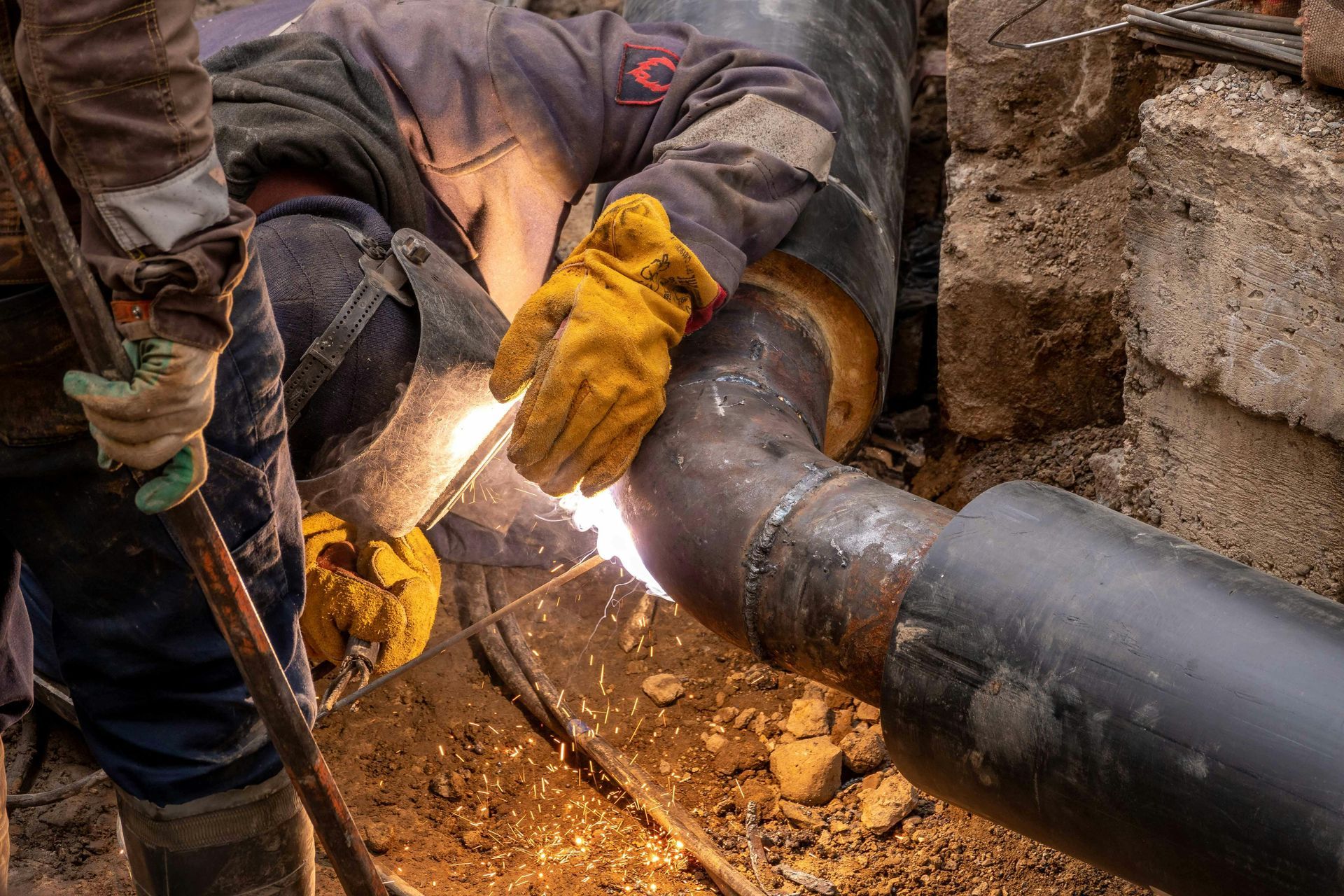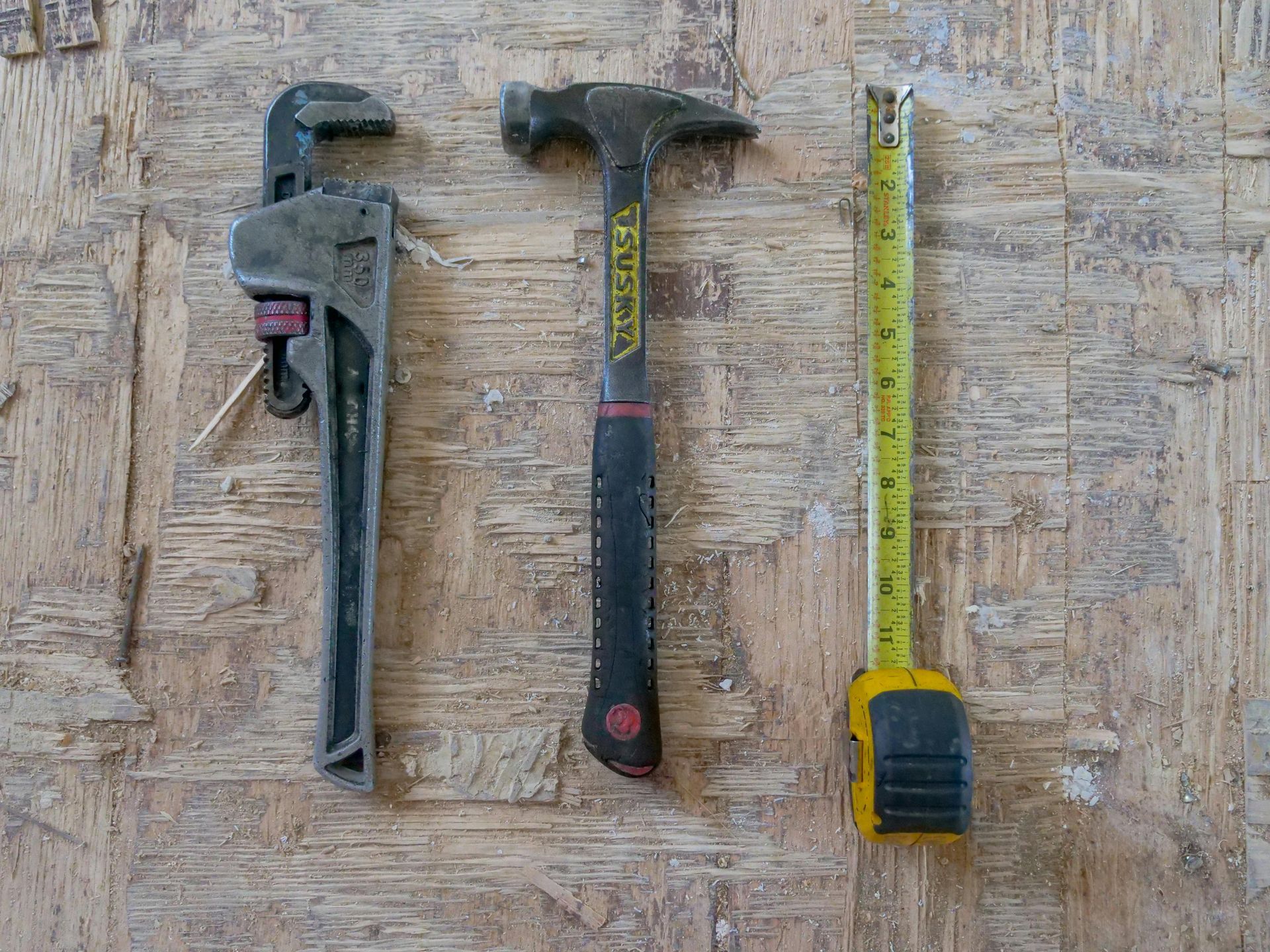PLUMBER
WHY PLUMBING ?
Plumbing is an essential service that everyone needs. By learning this trade, you can help people fix problems in their homes, like leaky pipes or broken toilets. Additionally, plumbing offers a stable job with good pay and opportunities for growth. Plumbers are always in demand, so you don't have to worry about finding a job.
Skills Needed:
- Technical Knowledge
- Problem-Solving Skills
- Manual Dexterity
- Knowledge of Tools and Equipment
- Understanding of Plumbing Codes and Regulations
- Communications Skills
- Attention to Detail
- Time Management
- Physical Endurance
- Safety Awareness
- Mathematical Skills
- Customer Relationship Management
Here are some general statistics:
500,000
Plumbers employed in the U.S.
According to the U.S. Bureau of Labor Statistics (BLS) 2023.
5%
The employment of Plumbers is projected to grow, from 2021 to 2031.
$98,000 annually
The highest earner a plumber can make.
TYPICAL SALARY
$ 40k - 98k per year
Highest paying states
Some of the highest paying states for Plumbers include California, New York, Massachusetts, Illinois and Oregon.
TOOLS OF THE TRADE
Common tools used by plumbers include:
- Pipe Wrenches
- Adjustable Wrenches
- Plunger
- Pipe Cutters
- Basin Wrench
- Teflon Tape
- Plumbing Snakes
- Hacksaw
- Level
- Tube Bender
- Faucet/Fixture Installation Tools
- Pipe Threader
- Soldering Iron/Torch
- Plumber's Putty
- Drill
- Pliers
- Caulking Gun
- Pressure Gauge
- Inspection Camera
- Welding/Cutting Torch
NECESSARY CERTIFICATIONS FOR PLUMBERS
State or Local Plumbing License
In many regions, plumbers must obtain a license to legally perform plumbing work. Licensing ensures that plumbers have the technical knowledge and practical experience needed to work safely and competently.
Types of Licenses:
- Journeyman Plumber: A plumber who has completed the required apprenticeship and has passed the licensing exam.
- Master Plumber: A higher-level license that typically requires additional experience and examinations. It may also allow the holder to supervise other plumbers and run a plumbing business.
- Apprentice Plumber: An entry-level license for individuals working under a licensed plumber while they complete their education and apprenticeship.
EPA Section 608 Certification (Refrigerant Handling)
This certification is required for plumbers who handle refrigerants, particularly when working with HVAC systems, heat pumps, or refrigeration systems. It ensures that technicians know how to safely handle refrigerants and comply with environmental regulations.
Types:
- Type I: Small appliances like refrigerators.
- Type II: High-pressure refrigerants like air conditioners.
- Type III: Low-pressure refrigerants like chillers.
- Universal: Covers all types of refrigerants.
Backflow Prevention Certification
This certification ensures that plumbers can properly install and maintain backflow prevention devices, which are necessary to protect drinking water from contamination due to reverse water flow.
OSHA Certification
Plumbers often work in hazardous environments, and this certification ensures they understand safety regulations and best practices to avoid accidents and injuries on the job.
- OSHA 10-Hour Construction Safety Course: Focuses on basic construction safety for workers in various trades, including plumbing.
- OSHA 30-Hour Construction Safety Course: A more in-depth program designed for supervisors or individuals responsible for safety management on construction sites.
NCCER Certification (National Center for Construction Education and Research)
The NCCER offers a certification program for plumbing professionals that standardizes the training process and verifies a technician's proficiency. This certification is recognized across the U.S. and is especially useful for plumbers looking to prove their competency.
Plumbing System Design and Installation Certifications
These certifications are for plumbers who want to specialize in designing plumbing systems for new construction, renovation, or high-end installations. It helps plumbers demonstrate their expertise in system design.
- Example: Certified in Plumbing Design (CPD) offered by ASPE
Water Supply & Distribution Certification
Some areas require plumbers to have a specific certification or license to work with water supply and distribution systems. This ensures that plumbing systems comply with health and safety standards.
Energy Efficiency and Green Plumbing Certification
As demand for energy-efficient homes and buildings grows, plumbers can pursue certifications in green plumbing practices to install energy-efficient systems (e.g., low-flow fixtures, tankless water heaters, and solar water heaters).
- Example: GreenPlumber® certification, which trains plumbers to install eco-friendly systems and reduce water consumption.
Apprenticeship Completion Certification
To become a licensed plumber, most regions require plumbers to complete an apprenticeship program, which combines classroom education with hands-on experience. Upon successful completion, plumbers receive certification indicating they have met the necessary education and experience requirements.
- Programs: Apprenticeships may last 3-5 years, depending on the region and the specific trade union or training program.
CAREER LINKS
- American Fire Sprinkler Association
- American Welding Society
- Home Builders Institute
- International Association of Machinists and Aerospace Workers
- International Brotherhood of Electrical Workers
- Mechanical Contractors Association of America
- National Association of Home Builders
- National Center for Construction Education and Research
- National Fire Protection Association
- National Fire Sprinkler Association




